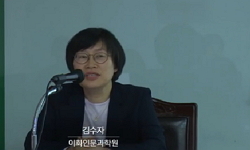이 연구는 권력에 대한 이론적 담론을 전개하는 것이다. 푸코에 의하면, 세상에 존재하는 모든 대상은 담론적 형성과정을 거쳐 의미가 부여되어 하나의 개체로 성립된다고 한다. 특정 대상...
http://chineseinput.net/에서 pinyin(병음)방식으로 중국어를 변환할 수 있습니다.
변환된 중국어를 복사하여 사용하시면 됩니다.
- 中文 을 입력하시려면 zhongwen을 입력하시고 space를누르시면됩니다.
- 北京 을 입력하시려면 beijing을 입력하시고 space를 누르시면 됩니다.
부가정보
국문 초록 (Abstract)
이 연구는 권력에 대한 이론적 담론을 전개하는 것이다. 푸코에 의하면, 세상에 존재하는 모든 대상은 담론적 형성과정을 거쳐 의미가 부여되어 하나의 개체로 성립된다고 한다. 특정 대상에 대한 담론적 형성은 수없는 대화, 토론, 논쟁, 발표와 같은 과정을 거쳐 정제된 대상에 주어진 의미이며, 이것은 한 시대를 풍미하는 `진리`로 받아 들여져 지식체계를 구성하고 나아가 제도화되어 권력으로 존재하게 된다. 푸코의 담론적 형성과 실행적 논리를 받아들여, 이글에서는 권력이라는 복잡하고 다양한 의미를 가진 개념이 학자들에게 어떻게 비춰져 모양새를 갖추게 되었는지를 논했다. 이 연구에서 다루고 있는 학자들은 마키아벨리, 홉스, 로크, 루소 등과 같은 고전적 사상가들로부터 시작해, 20세기 초·중반 권력을 실증주의적 관점에서 연구한 엘리트 이론가, 다원론자, 변증법적 유물론자들은 물론 권력을 사회학, 정치이론, 후기 구조주의, 포스트모던 등의 관점에서 연구한 많은 학자들의 연구를 비교·대조해 역사적으로 또는 관점에 따라 권력에 주어진 의미가 어떻게 진화 했는지를 연구했다. 권력의 유형학에서는 권력의 속성을 개념화한 연구들을 소개해 권력의 본질을 다뤘으며, 결론적으로 권력연구의 특성에 따른 좌표를 총체적으로 그려내는 학문적 시도를 했다. 아울러 이 글은 과거 행정학이 주어진 정책목표를 단순히 전환시키는 관리방법에 초점이 모아졌다면, 오늘날 행정학 분야에서 요구되는 전략적 관료들에게 권력의 본질을 이해 가능케 함으로써 그들의 업무환경에 대한 이해는 물론 이 글을 통해서 업무환경 내에서 작용하는 권력관계를 분석할 수 있는 능력을 겸비할 수 있는 기회가 되기를 바란다.
다국어 초록 (Multilingual Abstract)
This study is about discourses of power. Power is one of the key concepts about political phenomena that could not be easily grasped or interpreted. In spite of its long history, there is a notable lack of agreement both about its specific definition,...
This study is about discourses of power. Power is one of the key concepts about political phenomena that could not be easily grasped or interpreted. In spite of its long history, there is a notable lack of agreement both about its specific definition, and about many features of the conceptual context in which it should be placed. The purpose of this paper is to attempt to outline a large number of aspects of the creation of power which have been theorized in different perspectives. The studies depicted and introduced in this article which deal with the creation of power can be divided into three broad categories. First of all, There are theorists viewed power coercively. They treat individuals get each other to do things which they would not otherwise do through the treat or use of physical sanction or inducements. Secondly, there are many who argue that power is an outcome of the creation of social order, argue that power is an outcome of the creation of social order which is responsible for relations of power and powerlessness. They facilitate by conferring upon the actors a capacity for social action which enables them to make things happen which would not otherwise occur. The last category dealt with the analysis of Foucault, as a post-structuralist, who choose an important aspect of social order, the role of knowledge in the reproduction of relations of domination to analyse power. In this discourses of power, I try to provide the theories of the creation of power which explain the relationship between ways of creating power. Of course, I am not in a position that every aspect of various perspectives could be presented, although a significant number could be addressed. After discussing three broad categories of power, a typology of power has been set out in order to show the reader modes of creating power. Finally, as a way of concluding this work, I summarize the theoretical thoughts of power in a way of comparing and contrasting the main features of pluralism, elitism, class dialectical models, and the post-structuralist`s view of creating power. Consequently, as a scholar of the field of public administration, I hope this study would be capable not only of making bureaucrats understand what their working environments are in terms of the power relations, but also of being strategic managers making happen as intended by way of facilitating the power relations in their environments.
참고문헌 (Reference)
1 Habermas, jurgen, "의사소통행위이론." 나남출판 2006
2 Foucault, Michel, "감시와 처벌: 감옥의 탄생" 나남출판사 2006
3 Pitkin, Hanna F., "Wittgenstein and Justice" University of California Press 1972
4 Dahl, A. Robert, "Who Governs?" Yale University Press 1961
5 Locke, J., "Two Treatises of Government" Cambridge University Press 1988
6 Bachrach, P., "Two Faces of Power" 56 : 947-952, 1962
7 Gohler, Gerhard, "The Sage Handbook of Power" Sage Publications Ltd 2009
8 Babbie, Earl, "The Practice of Social Research" Wadsworth 2006
9 Castells, Manuel, "The Power of Identity" Wiley-Blackwell 2010
10 Allen, Amy, "The Power of Feminist Theory, Domination, Resistance, Solidarity" Westview Press 1999
1 Habermas, jurgen, "의사소통행위이론." 나남출판 2006
2 Foucault, Michel, "감시와 처벌: 감옥의 탄생" 나남출판사 2006
3 Pitkin, Hanna F., "Wittgenstein and Justice" University of California Press 1972
4 Dahl, A. Robert, "Who Governs?" Yale University Press 1961
5 Locke, J., "Two Treatises of Government" Cambridge University Press 1988
6 Bachrach, P., "Two Faces of Power" 56 : 947-952, 1962
7 Gohler, Gerhard, "The Sage Handbook of Power" Sage Publications Ltd 2009
8 Babbie, Earl, "The Practice of Social Research" Wadsworth 2006
9 Castells, Manuel, "The Power of Identity" Wiley-Blackwell 2010
10 Allen, Amy, "The Power of Feminist Theory, Domination, Resistance, Solidarity" Westview Press 1999
11 Ham, Christopher, "The Policy Process in the Modern Capitalist State" Wheatsheaf Books Ltd 1984
12 Barnes, Barry, "The Nature of Power" Polity Press 1988
13 Parsons, Talcott, "The Distribution of Power in American Society" 10 : 123-143, 1957
14 Rousseau, Jean Jacques, "The Discourses and Other Early Political Writings" Cambridge University Press 1997
15 Giddens, Anthony, "The Constitution of Society" Polity Press 1984
16 Haugaard, Mark., "The Constitution of Power" Manchester University Press 1997
17 Foucault, Michel, "The Archaeology of Knowledge" Tavistock 1972
18 Dahl, A. Robert, "Social Science and Community Action, East Lansing: Institute for Community Development and Services" Michigan State University 25-42, 1961
19 Hall, Stuart, "Representation: Cultural Representations and Signifying Practices" Sage 1997
20 Haugaard, Mark, "Power: A ‘Family Resemblance’ Concept" 13 (13): 419-438, 2010
21 Lukes, Steven., "Power: A Radical View" Palgrave 2005
22 Morriss, P., "Power: A Philosophical Analysis" Manchester University Press 1987
23 Foucault, Michel, "Power/Knowledge: Selected Interviews and Other Writings 1972-1977" Harvester Press 1980
24 Gohler, Gerhard., "Power in Comtemporary Politics" Sage 41-58, 2000
25 Lasswell, Harold D., "Power and Society: A Framework for Political Inquiry" Yale University Press 1950
26 Lukes, Steven., "Power : A Radical View" Macmillan 1974
27 Dowding, Keith., "Power" Open University Press 1996
28 Boulding, Kenneth E., "Political Power: A Reader in Theory and Research" The Free Press 1963
29 Parsons, Talcott, "Political Power: A Reader in Theory and Research" The Free Press 1969
30 Simon, Herbert A., "Notes on the Observation and Measurement of Political Power" 15 (15): 500-516, 1953
31 Dreyfus, Hubert L., "Michel Foucault: Beyond structuralism and Hermeneutics" University of Chicago Press 1983
32 March, James G., "Measurement Concepts in the Theory of Influence" 19 : 202-226, 1957
33 Hobbes, T., "Leviathan" Penguin 1968
34 Lukes, Steven., "In Defense of “False Consciousness”" 2011 : 2011
35 Laclau, E., "Ideology and Socialist Strategies" University of Chicago Press 1985
36 Polsby, Nelson W., "How to Study Community Power: The Pluralist Alternative" 22 : 474-484, 1960
37 Clegg, Stewart R., "Framework of Power" Sage Publications 1989
38 Weber, M., "Economy and Society" University of California Press 1978
39 Hindess, Barry., "Discourses of Power : From Hobbes to Foucault" Blackwell Publishers Inc 1996
40 Bachrach, P., "Decisions and Non-Decisions: An Analytical Framework" 57 : 641-651, 1963
41 Polsby, Nelson W., "Community Power and Political Theory" Yale University Press 1963
42 Castells, Manuel, "Communication, Power and Counter-power in the Network Society" 1 : 238-266, 2007
43 March, James G., "An Introduction to the Theory and Measurement of Influence" 59 : 431-435, 1955
44 Castells, Manuel, "A Network Theory of Power" 5 : 773-787, 2011
동일학술지(권/호) 다른 논문
-
- 한국행정사학회
- 최봉수 ( Choi Bongsu )
- 2016
- KCI등재
-
노자 도덕경에 나타난 사회복지사상: 정부 관리의 기술을 중심으로
- 한국행정사학회
- 이미애 ( Lee Meeae )
- 2016
- KCI등재
-
니체의 인문학적 통찰에서 나타난 욕망의 시대에 관한 연구: 협치를 중심으로
- 한국행정사학회
- 김선정 ( Kim Sunjung )
- 2016
- KCI등재
-
다산 정약용의 정책개선방안: 정책과정(policy process)을 중심으로
- 한국행정사학회
- 진종순 ( Jin Jongsoon )
- 2016
- KCI등재
분석정보
인용정보 인용지수 설명보기
학술지 이력
| 연월일 | 이력구분 | 이력상세 | 등재구분 |
|---|---|---|---|
| 2026 | 평가예정 | 재인증평가 신청대상 (재인증) | |
| 2020-01-01 | 평가 | 등재학술지 유지 (재인증) |  |
| 2017-01-01 | 평가 | 등재학술지 유지 (계속평가) |  |
| 2014-10-01 | 학술지명변경 | 외국어명 : 미등록 -> Journal of Association for Korean Public Administration History |  |
| 2013-01-01 | 평가 | 등재 1차 FAIL (등재유지) |  |
| 2010-01-01 | 평가 | 등재학술지 선정 (등재후보2차) |  |
| 2009-01-02 | 학술지명변경 | 한글명 : 한국행정사학회 -> 한국행정사학지 |  |
| 2009-01-01 | 평가 | 등재후보 1차 PASS (등재후보1차) |  |
| 2007-01-01 | 평가 | 등재후보학술지 선정 (신규평가) |  |
학술지 인용정보
| 기준연도 | WOS-KCI 통합IF(2년) | KCIF(2년) | KCIF(3년) |
|---|---|---|---|
| 2016 | 0.22 | 0.22 | 0.38 |
| KCIF(4년) | KCIF(5년) | 중심성지수(3년) | 즉시성지수 |
| 0.36 | 0.43 | 0.551 | 0 |




 KCI
KCI KISS
KISS






